Manene Festival: Why do Indonesians dig up dead relatives every 3 years
Categories: Asia | Culture | Holidays and Festivals | Nations
By Pictolic https://pictolic.com/article/manene-festival-why-do-indonesians-dig-up-dead-relatives-every-3-years.htmlEvery three years, the Indonesian island of Sulawesi hosts the Manene Festival, in which representatives of the Toraja people dig up dead relatives from graves and dress them up in new clothes. This ritual has been around for over a hundred years. Participants parade with the bodies of the deceased and pose with them for photos. Translated from the Toraja language, the name of the festival translates as "The ceremony of cleaning corpses".
(7 photos in total)
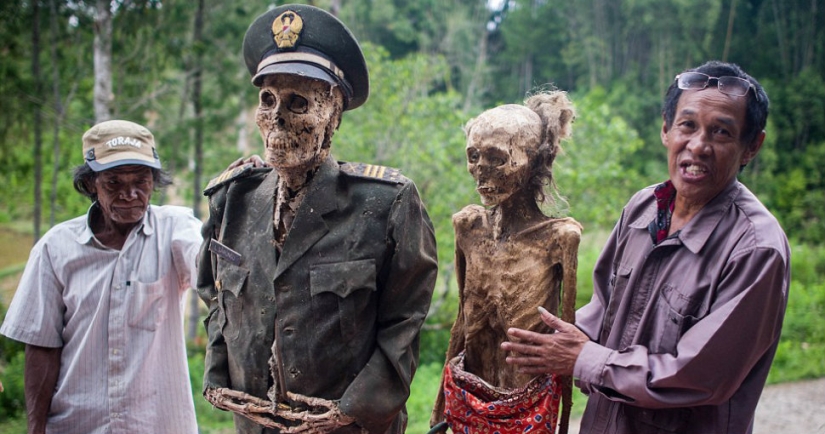 Source: dailymail.co.uk
Source: dailymail.co.uk
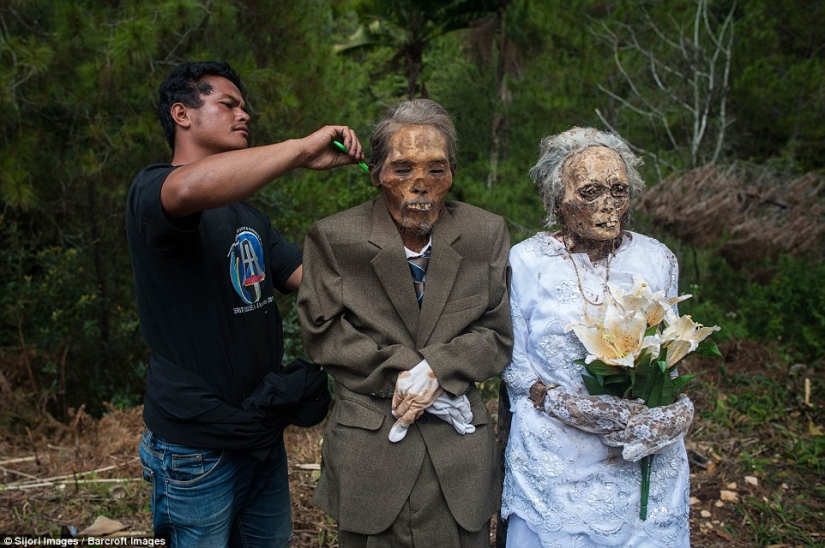
The grandson combs the hair of the dead grandfather.
For representatives of the Toraja people, the local population of the Tana-Toraja mountain region, the funeral is the most important event "in life". Most people spend their whole lives collecting money to be buried beautifully and with pomp.
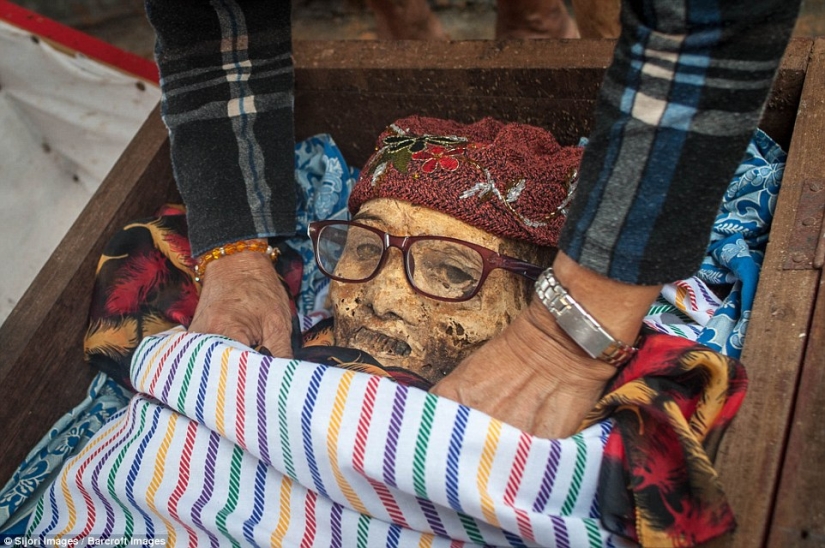
In some cases, funerals are even postponed indefinitely, from several weeks to several years, so that the family has time to save money for a beautiful and extravagant ceremony.
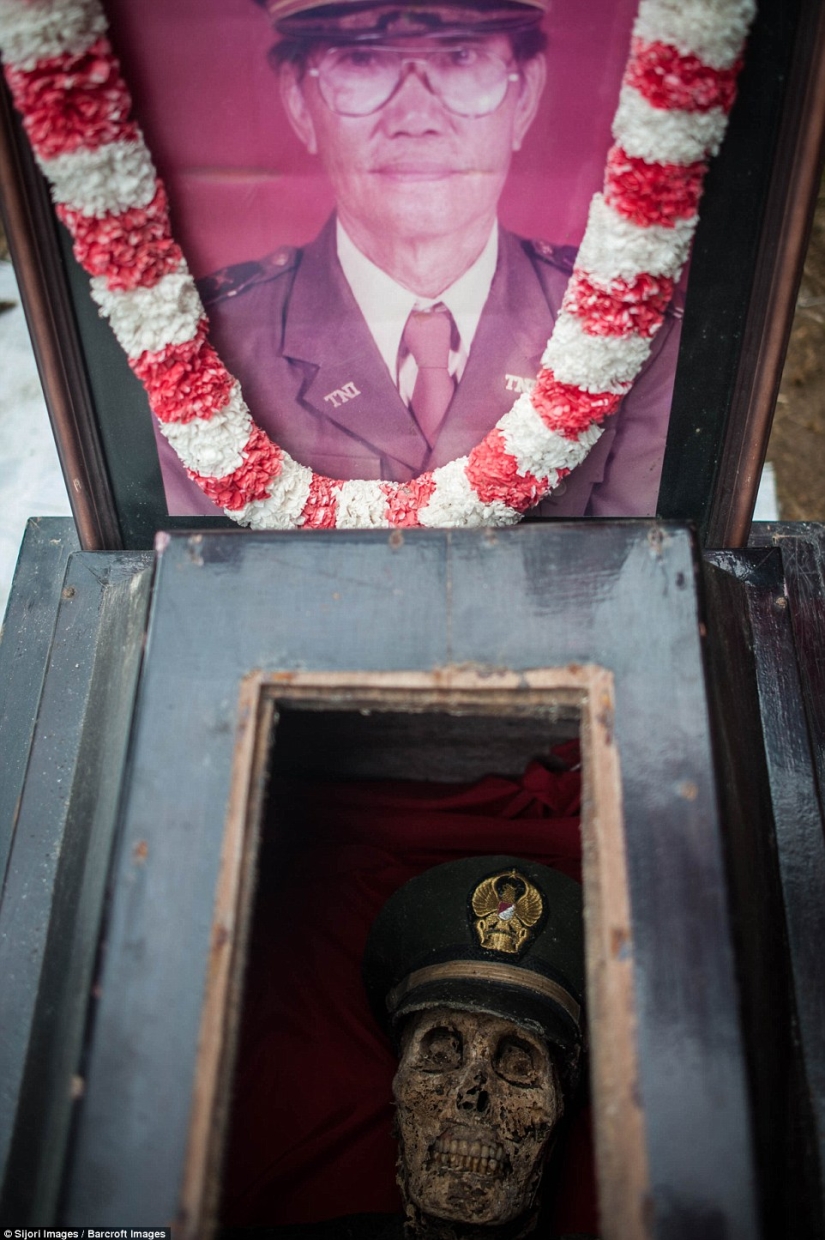
But funerals are never the last chance for people from the Toraja people to see their relatives. Whenever a person dies, his corpse is wrapped in several layers of cloth so that the body does not decompose.
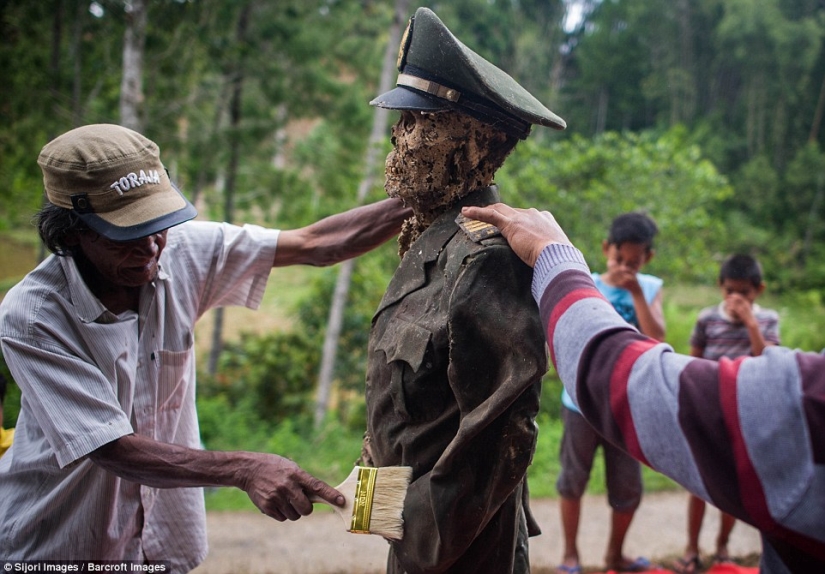
And after every three years, the bodies are dug up by relatives of the dead, who admire them, bring the corpses "in order" and dress them up in new clothes.
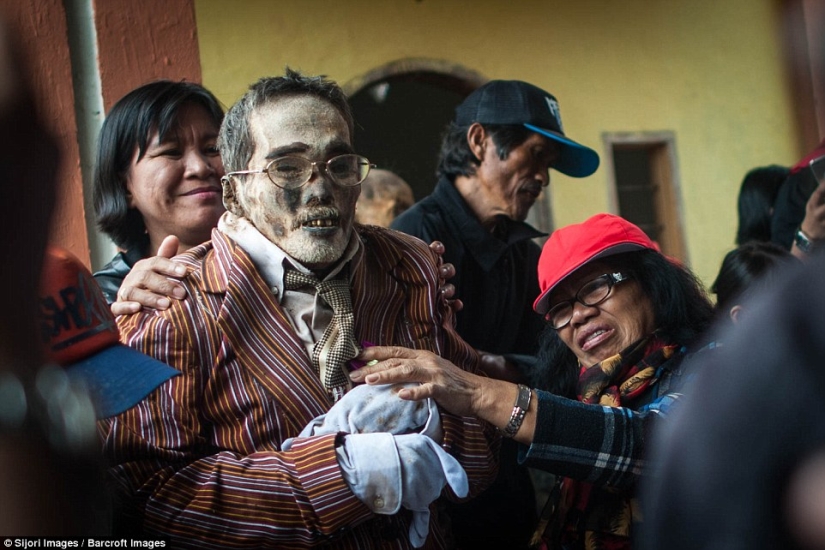
Another important element of the festival is the replacement and repair of coffins, which is carried out in order to stop the decomposition of the body.
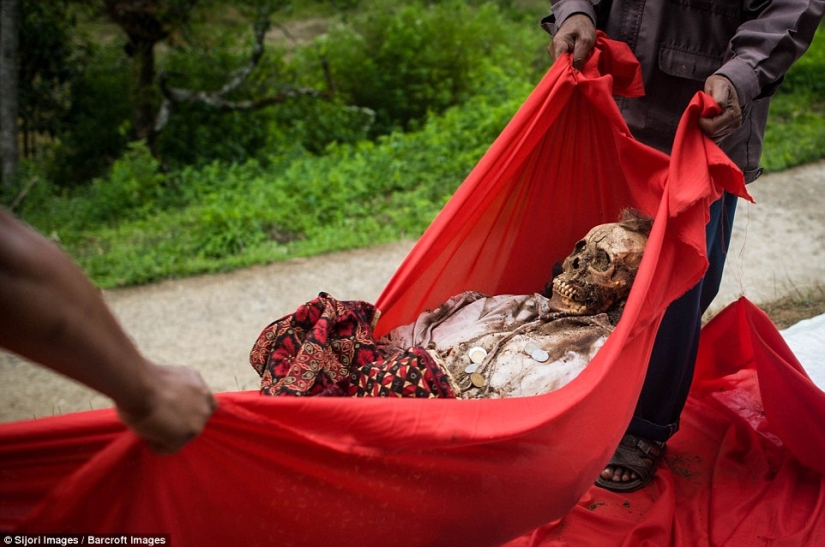
The Toraja people live in the highlands on the island of Sulawesi. These places are so remote that some villages existed without any connection with the rest of the world until the 1970s, when they were discovered by Dutch missionaries. There is also a common tradition among the Toraja to marry their relatives, however, no closer than the fourth generation. According to local beliefs, death is not the end of life, but only one of its stages.
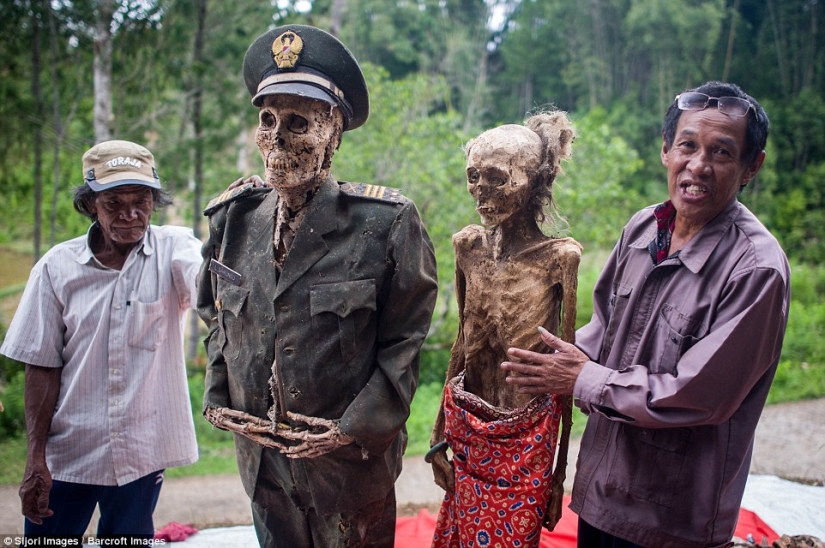
Funerals are considered the key moment of a person's transition to the spirit world, so some ceremonies last up to a week, and their scenario is carefully developed in advance. Also, according to the beliefs of Toraja, the soul of a dead person should always return to his native village. Because of this, many people do not leave their homes, fearing that death will overtake them far from home and their body will not be able to be delivered back.
Keywords: Indonesia | Cemetery | Dead | Islands | Relatives | Sulawesi | Traditions | Corpses
Post News ArticleRecent articles

It's high time to admit that this whole hipster idea has gone too far. The concept has become so popular that even restaurants have ...

There is a perception that people only use 10% of their brain potential. But the heroes of our review, apparently, found a way to ...
Related articles

Michael Sherwood and his son Kyle from Cleveland, United States — the owners of a specific family business. They belongs to a ...

Dental clinic in our days — it's not cheap, but available for each institution. Today, dentists use modern equipment and ...

It's hard to let go of loved ones who go to another world. The memory of them remains forever in our hearts, but it is no longer ...

New Year's is a time to surprise and delight loved ones not only with gifts but also with a unique presentation of the holiday ...